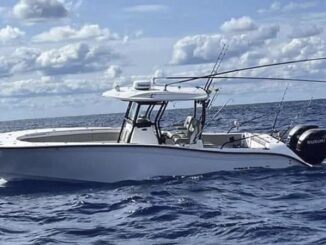
The Karen Beasley Sea Turtle Rescue and Rehabilitation Center filed a lawsuit in federal court today to force the state of North Carolina to stop authorizing gill net fishing in violation of the Endangered Species Act.
The lawsuit cites studies by the National Marine Fisheries Service, the National Oceanic and Atmospheric Administration, and the North Carolina Department of Marine Fisheries that have found gill net fishing in state waters results in the injury and death of sea turtles protected by the ESA.
The suit was filed in the U.S. District Court for the Eastern District of North Carolina.
The suit alleges that the North Carolina Department of Marine Fisheries, North Carolina Marine Fisheries Commission and DMF Director Dr. Louis Daniel have issued permits and licenses that “have resulted in the illegal take of estimated thousands of protected sea turtles over the previous decades, and continue to result in the illegal take of protected sea turtles today.”
Michelle Nowlin, supervising attorney for the Duke Environmental Law and Policy Clinic representing the Beasley Center, said the lawsuit asks the state of North Carolina to enforce existing laws.
“Our client is asking North Carolina to enforce the law to aid the recovery of these threatened species,” Nowlin said. “We value the rich history of commercial fishermen and fishing communities in our state. However, gill nets are a destructive gear, and the prevailing method of use injures and kills sea turtles and threatens their existence.
“Almost every Atlantic state with significant sea turtle populations has banned or severely restricted these nets in areas where sea turtles nest and forage, proving that commercial fishing can prosper without this harmful technology. After years of trying to address these problems through regulatory channels, sea turtle populations continue to decline. We must ask the court to enforce the law so that sea turtle populations may recover to the point where the legal protections afforded by the Endangered Species Act are no longer needed.”
All of the five sea turtle species found in North Carolina waters are designated as either threatened or endangered under the Endangered Species Act, according to the United States Fish and Wildlife Service.
After hatching on the beach, sea turtles spend the rest of their lives in the water, traveling ocean currents and foraging for food. They face a variety of threats, from habitat damage caused by polluted runoff to direct injury and death from being hit by motorboats and ships.
Gill nets constitute one of the biggest threats: Sea turtles caught in the nets are trapped under water, and they typically drown or suffer severe lacerations while struggling to free themselves.
As a consequence of these threats, only a small percentage of sea turtles reach reproductive age.




Be the first to comment